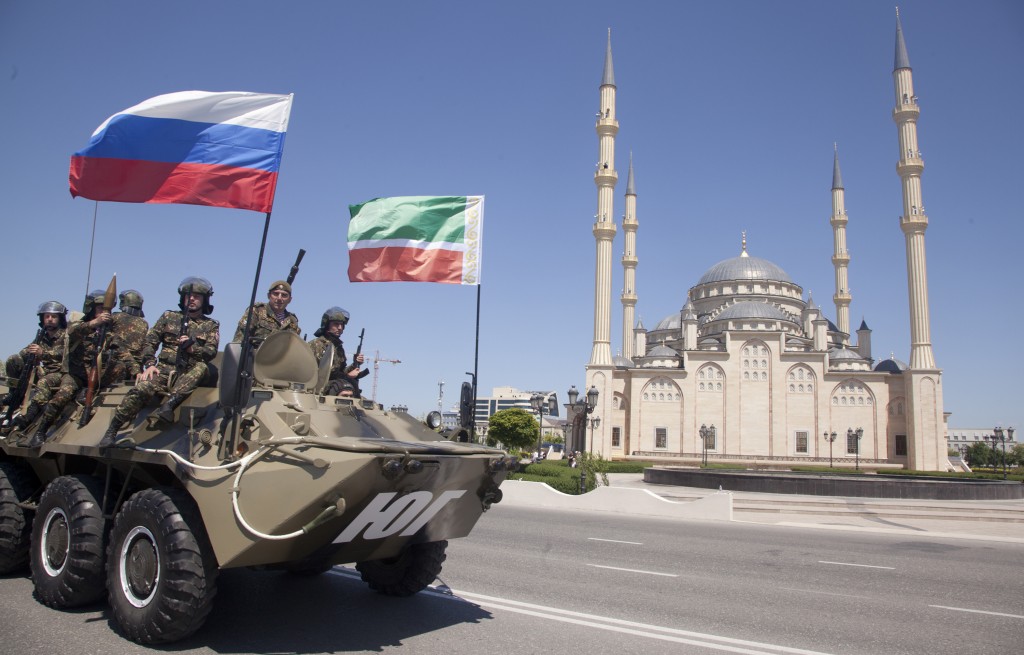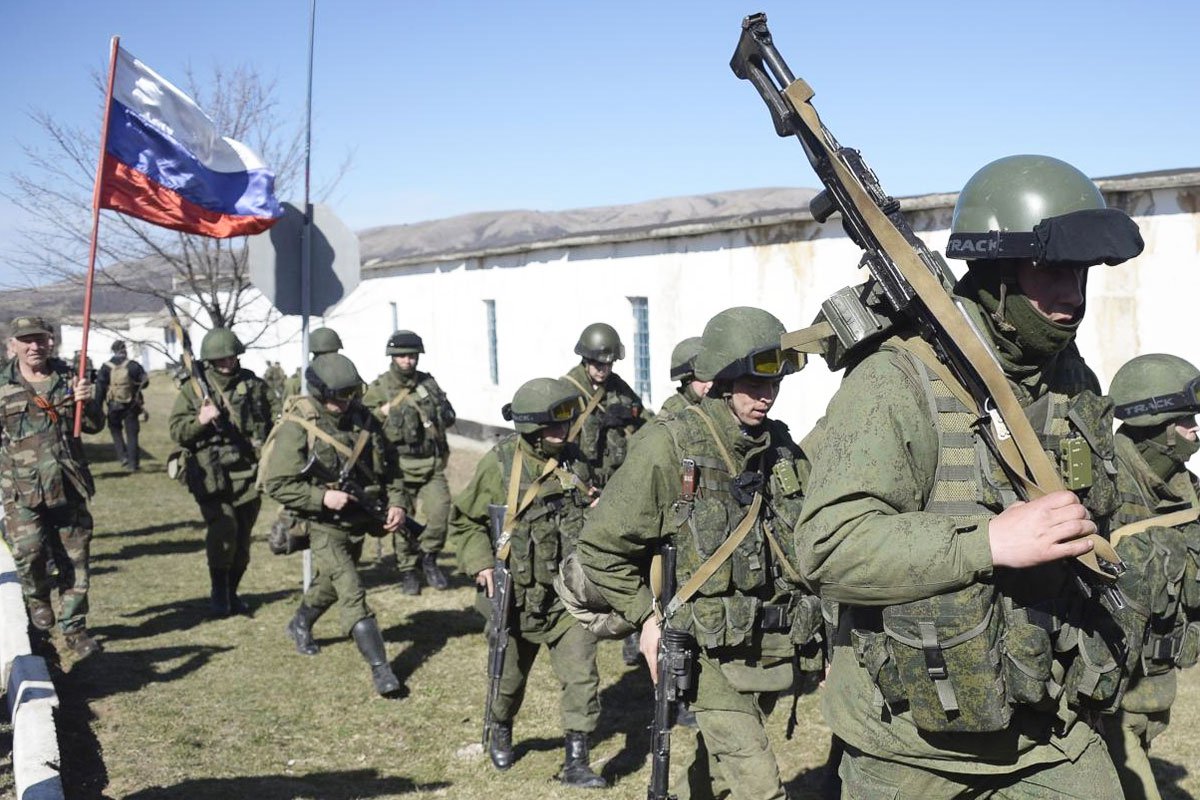Exporting Jihad from Russia to Syria: ISIS and the Russian-Chechen Relations
One of the neglected reasons behind the Russian military intervention in Syria in September 2015 is directly related to the involvement of the armed groups located in the North Caucasus to the Syrian civil war (Fatih Özbay). The anticipated risk of possible terror attacks that would be carried out by these belligerent groups when they return to Russia poses direct threats to Russian national security.
According to the information received from Russian sources dated 10th April 2017, there are 9000 Russian citizens fighting under the ISIS flag in Syria (Liveuamap.com) and Putin’s recent statement on Sputniknews dated 12th April 2017, which in fact proves the previous information, indicates that there have been approximately 5000 Russian citizens who had gone to Syria to join the ranks of the ISIS since January 2017. However such a statement may also be part of an information game to legitimize the military presence in Syria by exaggerating the number of Russian fighters flowing from the North Caucasus to Syria. Nevertheless, the existence of the Russian fighters on the ground in Syria is a stubborn fact and a recent report published by the Soufan Group indicates that there has been a significant increase in the number of foreign fighters in Syria from 12.000 to 31.000 between 2014 and 2015 and by the end of 2015 there were 4.700 foreign fighters in Syria and Iraq coming from the former USSR territories and approximately 2.500 of them came from the Russian Federation. As argued in the report, these 2.500 foreign fighters coming from the Russian Federation had Chechen or Dagestani origins (The Soufan Group).
Against this backdrop, it is worth revisiting the spillover effects of the Syrian Civil War on the North Caucasus since the new squirms in the Russian-Chechen relations that is generated by the civil war could have serious repercussions for the Russian national security itself.
The Spillover Effect of the Syrian Civil War on the North Caucasus
The adoption of the methods of the global jihadist groups such as suicide blasts and the attacks against civilians by the Chechen separatists was a direct consequence of the declaration of the establishment of the Caucasus Emirate by Dokka Umarov in 2007 and the resulting incorporation of the Chechen separatist movement into the global jihadism following the two Chechen wars and eventually the radicalization of the secessionists. Indeed, the declaration of an Islamic caliphate by the ISIS in Iraq and Syria in 2012 had a profound impact on the radicalization of the separatists located in the North Caucasus. Following the death of Dokka Umarov, the radical separatists have started to become more and more compartmented. While some of them were joining the ranks of the ISIS, the other divisions joined in al Nusra Front. However, the tight measures taken in Chechnya and Dagestan by Russia during the Olympic Games in Sochi in 2014 (Hasan Oktay) helped decrease in the number terrorist attacks carried out in the region. Nonetheless, it is supposedly claimed that the passage of radical groups located in the North Caucasus to Syria has been allowed by Russia since 2014 (Maria Tsvetkov).
The declaration of the Islamic caliphate by the ISIS and the military involvement of Russia in Syria in September 2015 laid the groundwork for the radicals in North Caucasus to come up against Russia through the civil war in Syria. However, as previously experienced in the Chechen-Russian wars, the Chechen separatists have been divided in the Syrian scene this time between the regime and the moderate rebels fighting against the Russians. It is after this point that Russia has started to become alarmed by the possibility of the risk of serious security threats that would be posed by the return of these Russian citizens fighting in Syria. According to Taştekin, Putin in fact benefited from the Syrian civil war by moving the Chechens away from its borders and with the help of the civil war he tries to dissolve the Caucasian militants at a distance from its borders (Fehim Taştekin). A similar line of argument comes from Gülşen, who argues that events like the killing of Russian soldiers in the Chechen military base, Petersburg metro attacks and the attacks to the apartments in Moscow point to the fact that Russia has been again surrounded by the threats coming from the North Caucasus (Halit Gülşen).
When the growing impact of the ISIS and other terror groups in the North Caucasus taken into account, it is possible to argue that there needs to be a more effective strategy that would be adopted by the Russia-backed Chechen administration in order the latter to confront the regional rebellions having external sources and support. In this context, it is obvious that a strategy based on an all-out punishment without distinction in order to identify salafi groups in its fight against the ISIS could cause further deepening the already-existing divisions in the society and consequently could galvanize new conflicts and radicalization. In fact, from a Chechen-Russian conflict point of view; this would mean that the Russian government would take the opportunity vis-a-vis the Chechens. According to Taştekin, despite the relative stability ensured by Russia in Chechnya, the existence of a salafi-inclined group in the 20 million Muslim population indicates that the jihadist/radical ideology has already transcended the borders of the North Caucasus (Fehim Taştekin).

Chechen special forces officers ride atop an armored personnel carrier during Victory Day parade in front of the Akhmad Kadyrov Mosque in central Grozny, on May 9, 2013. Grozny is the capital city in Chechen Republic, Russia. Photo by Elena Fitkulina/AFP/Getty Images
In this regard, it is possible to argue that a possible empathetic approach to be adopted by Russian security forces while dealing with the Chechen people, it would in turn provide the Russians with the chance of winning the support of the local population. In fact, there are some clear indicators that the Russians adopted such a strategy since Moscow started to take precautions to ensure the continuation of the administrative affairs in Chechnya and do not lose control in face of the possible risks that would be emanated from the Kadrov administration. The Russian strategy of improving the quality of the governance, terminating the practices regarding the administration of the sources allocated from the federal budget, controlling the Chechen security forces and transferring them to the necessary fields (like Syria), and putting an end to the impunity of the Chechen security forces may not give tangible results in the short term but in the long term they have the potential of being much helpful.
The international society failed to bring the Chechen-Russian conflict to an end however when today’s conditions are taken into account, it is obvious that the international society shares common interests with Russia with regards to the issues like the expansion of the ISIS in the North Caucasus and confronting the jihadist rebellions in the region (Sokirianskaia Ekaterina). If the suspects in Chechnya would be attempted to be punished en masse with the aim of dissolving the jihadist salafis from the North Caucasus regardless of the existence of a salafi inclination or not, there would be a re-experiencing of the fact that how reactionary steps contribute to further radicalization and how radicalization can be embedded to a global network as being experienced today. Not but not least, the international society should not forget that if it remains silent on those issue that it kept remaining silent before, this spiral of terror and security problems could have a higher risk to strike it at home.
This opinion piece is an extract of a longer part taken from the author’s forthcoming book: Beyza Gülin, Rus-Çeçen İlişkileri Bağlamında Çatışma ve İşbirliği Dinamikleri, Cinius Yayınları, İstanbul, Eylül 2017
References
“Foreign Fighters: An Updated Assessment of the Flow of Foreign Fighters into Syria and Iraq”, The Soufan Group, Newyork, December 2015, pp. 14-15., http://soufangroup.com/wpcontent/uploads/2015/12/TSG_ForeignFightersUpdate3.pdf,
“Putin says 9,000 out of 20,000 foreign ISIS fighters are Russian”, Liveuamap.com, 10 April, 2017, http://isis.liveuamap.com/en/2017/12-april-putin-says-9000-out-of-20000-foreign-isisfighters,
“Putin: Nearly Half of 20,000 Foreign Fighters in Syria Hail From CIS”, Sputniknews, 12 April, 2017, https://sptnkne.ws/edpX
Fatih, Özbay, “Suriye, Rusya için küresel siyasetin kapısı”, Aljazeraa, 30 September 2016, http://www.aljazeera.com.tr/al-jazeera-ozel/suriye-rusya-icin-kuresel-siyasetin-kapisi,
Fehim, Taştekin, “Kiril Mücahitlerle’ yüzleşme”, Duvar, 5 April 2017, http://www.gazeteduvar.com.tr/yazarlar/2017/04/05/kiril-mucahitlerle-yuzlesme/,
Halit, Gülşen, “Rus pasaportlu yabancı savaşçılar”, Aljazeera Türk, 15 April 2017 http://www.aljazeera.com.tr/gorus/rus-pasaportlu-yabanci-savascilar
Hasan, Oktay, “Kafkaslar’da Neler Oluyor?”,Kafkassam, 16 April 2016, http://www.kafkassam.com/kafkaslarda-neler-oluyor.html
Joanna, Paraszczuk,”Chechen Leader Kadyrov Doesn’t Consider IS A Threat To Russia”, Radio Free Europe/Radio Liberty, January 05, 2015, http://www.rferl.org/a/kadyrov-isischechnya-russia-threat/26777419.html
Maria, Tsvetkov, “How Russia allowed homegrown radicalsto go and fight in Syria”, Reuters, Special Report, 13 May,2016, http://www.reuters.com/article/us-russia-militantsspecialreport idUSKCN0Y41OP,
Sokirianskaia, Ekaterina: “Turning Chechnya’s Precarious Stability into Peace “, International Crisis Group, 2 July 2015, http://blog.crisisgroup.org/europe-centralasia/2015/07/02/turning-chechnyas-precarious-stability-into-peace/

This article is published under a Creative Commons Attribution-NonCommercial 4.0 International licence.

